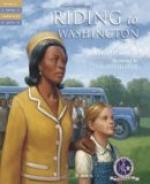At first he may have thought of nothing more than to produce plays suitable for performance either by the students of the University or by young people in those Yorkshire dales with which his affections were becoming year by year increasingly bound up. But, whatever the occasion, it soon proved to be no more than an occasion. He swiftly found that imaginative expression not only came naturally to him, but was a deep necessity of his nature; that it gave a needed outlet to powers and promptings which had hitherto lain dormant and whose very existence was unsuspected by his friends, perhaps even by himself. The May King, Potter Thompson, the adaptation of the Second Shepherds’ Play from the fifteenth-century Towneley Mysteries followed each other in swift succession; and the two first have, or will shortly have, been performed either by University students or by school children of “the Ridings."(6) This is not the place to attempt any critical account of them. But there are few readers who will not have been struck by the simplicity with which the themes—now pathetic, now humorous, now romantic—are handled, and by the easy unconsciousness with which the Professor wears his “singing robes.”
The same qualities, perhaps in a yet higher degree, appear in the dialect poems, written during the last three years of his life: Songs of the Ridings. The inspiration of these was less literary; they sprang straight from the soil and from his own heart. It was, no doubt, a scholarly instinct which first turned his mind in this direction: the desire of one who had studied the principles of the language and knew every winding of its historical origins to trace their working in the daily speech of the present. He has told us so himself, and we may readily believe it. But, if he first came to the dales as learner and scholar, he soon found his way back as welcome visitor and friend. The more he saw of the dalesmen, the more his heart went out to them: the more readily, as if by an inborn instinct, did he enter into their manner of life, their mood and temper, their way of meeting the joys and sorrows brought by each day as it passed. And so it was that the scholar’s curiosity, which had first carried him thither, rapidly gave way to a feeling far deeper and more human. His interest in forms of speech and fine shades of vowelling fell into the background; a simple craving for friendly intercourse, inspired by a deep sense of human brotherhood, took its place. And Songs of the Ridings(7) is the spontaneous outgrowth of the fresh experience and the ever-widening sympathies which had come to him as a man. The same is true of Tales of the Ridings, published for the first time in the following pages.




